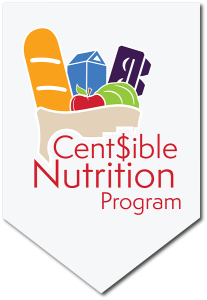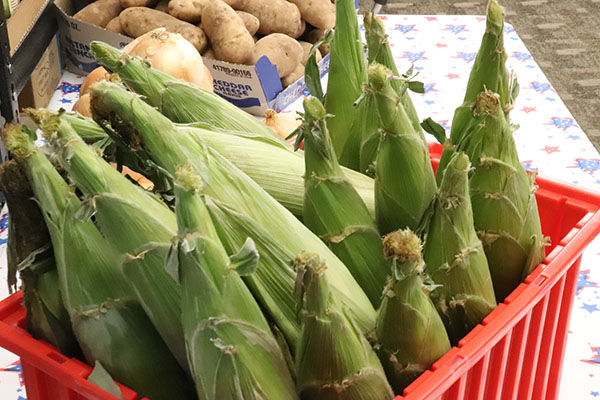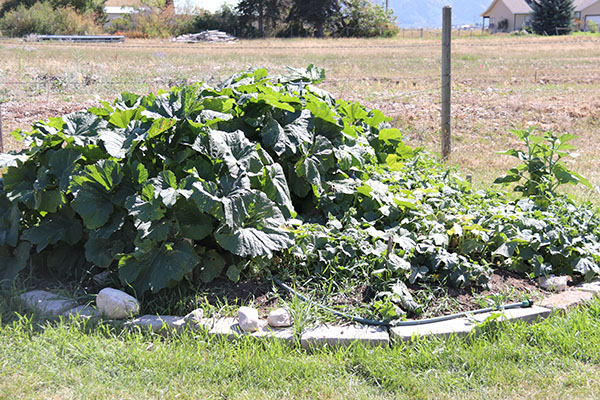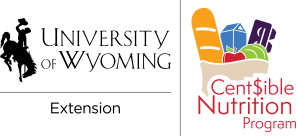Fresh Produce Arrives at the Thayne Community Food Bank
September 2019
The Thayne Community Food Bank (TCFB) started as three shelves and 100 cans in a church closet in 2003, but it has changed a lot since then, in both location and the ways it serves patrons.
“In 16 years, we’ve grown from three shelves to many shelves,” said Julie Buckley, board chair and volunteer for the TCFB. “For 16 years, we have pretty much only had canned food.”
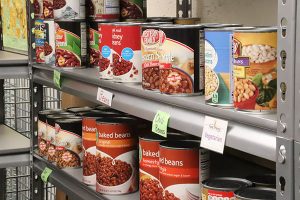
Patron Choice
The Healthy Food Pantry Project (HFPP) is based on national toolkits for food pantries to make small changes that have positive outcomes on patron health. One of the strategies listed in the HFPP Toolkit is allowing patrons to choose their own foods, rather than have preselected bags of food or food behind a counter. Patron choice decreases food waste, while encouraging patrons to try new foods. It also increases the dignity of pantry patrons. At the Thayne Community Food Bank, patron choice was not a new idea, but rather one of the founding ideas for the pantry.
“We’ve always done patron choice,” said Julie Buckley, who started the pantry. “We find it’s been the most efficient use of our resources and we also feel that it fits a need for the patrons.”
The addition of shelf signage and posters at the TCFB helps patrons select healthier items, such as low-sodium canned goods and whole grains. This signage is available from CNP through the HFPP toolkit and is a simple way to help boost the choosing power of patrons.
“Those tags on the grocery shelves help patrons pick the healthier choices, if they are looking for that,” said Shelley.
In spring 2019, however, that changed after the TCFB connected with Lincoln County Cent$ible Nutrition Program (CNP) educator Shelley Balls. Shelley approached the TCFB with the idea of providing fresh, perishable food items and offered to help secure funding to make it possible.
“In the past we have only done dry goods and frozen foods, especially meats that we get donated, but with the program Shelley has introduced to us, we’ve been able to add fruits and vegetables and low-fat dairy that we otherwise would not be able to have,” said Jillaine Maes, TCFB board member and TEFAP coordinator. “That has been wonderful for our patrons.”
The addition of fresh fruits and vegetables is part of a larger program across Wyoming called the Healthy Food Pantry Project (HFPP). As part of HFPP, food banks and pantries can work with CNP to increase the health of patrons. The TCFB added shelf signage indicating healthy choices and put up posters around the room sharing MyPlate health messages as part of their HFPP as well as adding the fresh food items.
While the signage was simple to put up, providing fresh food items required some changes to the TCFB, including a new power source in the TCFB for the glass-front refrigerator and working with volunteers to ensure they had the extra time and energy required to provide fresh items. The city of Thayne, which provides the space and utilities to the TCFB at the Thayne Community Center, helped to make the new power source possible and the volunteers stepped up to provide the extra time needed to handle fresh donations.
Despite the work and some unexpected learning processes, the payoff was worth it. Once TCFB patrons learned that fresh items would be available, the line outside the door before 11 AM started growing and growing. The fresh items go fast and Julie is happy to see it go.
“It’s been exciting to me to know that more fresh things are going into homes with children,” said Julie, who has always worked with children and is glad to see families benefitting from the added fruits and vegetables.
The fresh items have also brought new patrons to the pantry, patrons who perhaps needed food assistance before, but were unlikely to used canned items.
“Working with Shelley has been fabulous,” said Jillaine. “She is a great resource for the food bank. She has allowed us to increase the number of patrons that we have seen and she has allowed us, of course, to change the kinds of food that we offer for our patrons.”
“Since the Thayne Community Food Bank started offering fresh produce items, it’s been easier for us to eat healthier,” a patron said.
To assist patrons with using new foods, Shelley provides recipes cards and cooking demonstrations using recipes from the Cent$ible Nutrition Cookbook. The CNP recipes help introduce patrons to new foods that may not be part of their usual diet. Trying new foods through the pantry has encouraged some patrons to add those items as a regular part of their meals, Jillaine explained.
“She’s (Shelley) brought amazing recipes,” said Carol Rush, TCFB board member and volunteer coordinator. “Our patrons love her; they love when she’s here. We tend to have a little more activity when Shelley’s here cooking for us.”
The smells of food cooking and wafting down the hallway of the Thayne Community Center definitely has a way of drawing people in, as does the TCFB commitment to the health of its patrons. The HFPP has only be going for a few months at the TCFB, but so far, it seems to be a good match.
“It is fun to see patrons talk about the fresh produce,” said Shelley, who goes to the TCFB every other month for a cooking demonstration. “Seeing patron appreciation is huge.”
That appreciation lets Shelley and the TCFB know that they filled a need. Knowing that patrons are receiving healthier options has been worth the trials and errors of adding a new program.
Read more about the Thayne Community Food Bank’s work.
